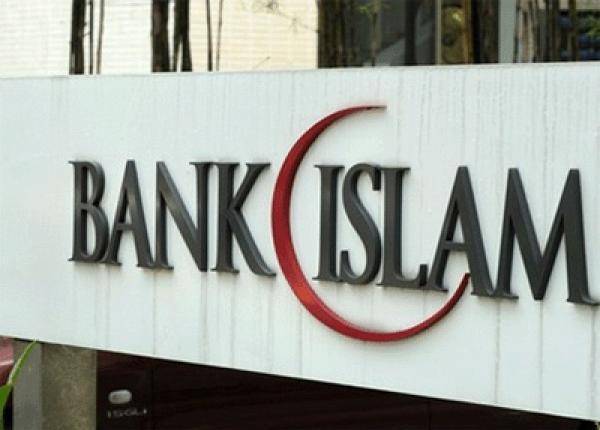BAKU, Azerbaijan, November 24. Azerbaijan’s financial system is entering a new era defined by digital transformation, modern regulatory frameworks, and inclusive financial policies. Amid these changes, Islamic banking, a faith-based, interest-free financial model, is catching the eye not just for its adherence to religious tenets but also for its sound economic reasoning, risk-sharing strategies, and backing of the real sector.
Once discussed theoretically, Islamic banking in Azerbaijan has moved to practical implementation through legal frameworks, research, and pilot initiatives. According to the “Financial Sector Development Strategy for 2024-2026” approved by the Central Bank of Azerbaijan (CBA), measures are underway to establish a functioning Islamic banking system. Recent statements from the CBA, international credit rating agencies, and experiences of regional countries indicate that Azerbaijan is really putting its best foot forward in embracing this new financial philosophy.
Why is the new financial model so relevant?
With established ecosystems in Malaysia, Indonesia, the United Arab Emirates, Saudi Arabia, and Türkiye, Islamic banking is one of the fastest-growing financial systems globally. The system is built on principles of interest prohibition, risk-sharing, real-sector financing, and financial equity. Its popularity stems not only from compliance with Sharia principles but also from its potential to foster stable and sustainable economic growth.
In Azerbaijan, this model is particularly relevant because a significant segment of the population avoids interest-based loans, and small and medium enterprises (SMEs) face financing challenges. The country also provides favorable conditions for leadership in Islamic finance. As a result, the banking sector is exploring new income streams and less speculative opportunities, making Islamic banking a real demand rather than a theoretical concept.
The CBA Approach: “Understanding Demand First”
Taleh Kazımov, Chairman of the CBA, stressed that getting a handle on demand is the name of the game before rolling out a big-time model.
“To establish a broad model, we must first assess demand. This is not a sector to implement hastily,” Kazımov said.
He added that the CBA’s “Islamic window” concept is designed precisely for this purpose, allowing pilot interest-free operations within conventional banks to train the sector and reveal the market’s potential.
An initial assessment conducted in 2022 indicated that demand for Islamic finance in Azerbaijan could reach approximately 300 million manat ($176.4 million), representing a minimal starting point.
“If the system works properly, this market is expected to grow exponentially,” Kazımov noted.
This statement underscores that Azerbaijan’s banking sector is on the brink of a transformative new era. Global experience shows that Islamic finance is far more than an alternative credit model; it represents a completely different financial philosophy, one that is more transparent, emphasises risk-sharing, and incorporates elements of social responsibility.
Significant legislative reforms are anticipated
Implementing Islamic banking in Azerbaijan entails creating a new financial ecosystem, requiring updates to the legal architecture of the banking sector. Since Islamic finance does not rely on traditional interest, the current legal framework is insufficient. Consequently, amendments across a broad spectrum, from the Civil Code to the Tax Code, are necessary.
Rustam Tahirov, Director of the Financial Sector Sustainable Development Department at the CBA, confirmed that these legal changes would be submitted to the government by the end of 2025. One key measure involves exempting Islamic finance operations from value-added tax (VAT), which would make interest-free financial models economically competitive.
Tahirov highlighted that the issue of VAT exemption is, in fact, the cornerstone of the entire process. Unlike traditional credit, Islamic finance often involves a two-step operation: the bank first purchases an asset and then sells it to the client. Under current legislation, these transactions face additional taxation, which reduces the model’s economic appeal. Removing this burden would allow Islamic banking to establish itself in Azerbaijan not merely as a tool for ideological or religious purposes, but as a fully competitive financial instrument.
What is particularly noteworthy is the government’s systematic approach to this initiative. This demonstrates that Islamic finance is not viewed as a temporary or localised project in Azerbaijan. On the contrary, the state sees it as a strategic opportunity to diversify the economy, create new investment platforms, and strengthen financial stability.
The legislative package set to be presented by the end of 2025 could represent the most significant legal transformation in the country’s financial system in recent years. If implemented successfully, Azerbaijan could become a regional, and even broader, exemplar for the development of Islamic finance.
Phased implementation from 2025: "Islamic windows" move into practice
The system’s initial form, “Islamic windows” operating within conventional banks, is no coincidence. Globally, this is the standard starting point. This stage has three main objectives: to introduce interest-free products to customers, to build methodological and operational expertise within the banking sector, and to measure real demand while creating a statistical foundation.
World experience shows that central banks in countries like Pakistan and Türkiye provide direct support for this preparatory phase, ensuring the system is launched effectively and sustainably.
Moody’s: “A positive credit effect for Azerbaijan”
The international rating agency Moody’s highlights that the introduction of Islamic banking will open new revenue streams for banks.
“In particular, it will become easier to attract funds from Islamic finance institutions, long-term and stable financing will be possible through sukuk issuance, and the liquidity of the banking sector will be strengthened,” the agency noted.
Moody’s also emphasised a striking point, noting that the majority Muslim population in Azerbaijan indicates immense potential, but regulatory gaps have so far prevented this potential from being realised.
A new boost for small and medium-sized enterprises (SMEs)
SMEs play a crucial role in Azerbaijan’s economy, contributing significantly to both economic output and employment. However, access to financing remains a challenge. Islamic finance’s risk-sharing instruments could provide fairer and more transparent financial opportunities, supporting the expansion of entrepreneurship and contributing to economic diversification.
Observers note that Azerbaijan is treading carefully and playing its cards right as it makes the leap into Islamic banking, which is just the ticket. The country is advancing on three fronts: assessing real demand (i.e., what products are needed?), updating the legal framework (i.e. without which implementation is impossible), and training the banking sector while ensuring a gradual and controlled adaptation of processes.
This approach suggests that the transformation will be long-term and sustainable. The goal is not just to introduce new products but to establish a fully-fledged new financial philosophy in Azerbaijan.
In conclusion, Islamic banking has the potential to become a cornerstone of a new economic stage. With careful preparation and successful implementation of “Islamic windows,” 2025-2026 could mark the beginning of a transformative era in Azerbaijan’s financial history.
Stay up-to-date with more news on Trend News Agency's WhatsApp channel







